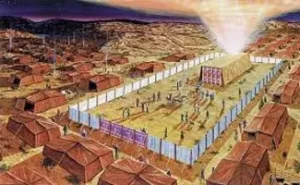“In a crowd, individuals lose their individuality. A kind of collective mentality takes over, and people find themselves doing what they would never consider doing on their own… Normal deliberative processes break down. Sometimes this expresses itself in violence, at other times in impulsive economic behaviour giving rise to unsustainable booms and subsequent crashes. Crowds lack the inhibitions and restraints that form our inner controls as individuals.
…
The crowd that gathered around Aharon was in the grip of panic. Moshe was their one contact with God, and thus with instruction, guidance, miracle and power. Now he was no longer there and they did not know what had happened to him. Their request for ‘gods to go before us’ was ill-considered and regressive. Their behaviour once the calf was made – ‘the people sat down to eat and drink and then stood up to engage in revelry’ – was undisciplined and dissolute…
…
The Vayakhel of this week’s parsha was quite different. Moshe sought to create community by getting the people to make personal contributions to a collective project, the mishkan, the Sanctuary. In a community, individuals remain individuals. Their participation is essentially voluntary: ‘Let everyone whose heart moves him bring an offering.’ Their differences are valued because they mean that each has something distinctive to contribute…
…
What united them was not the dynamic of the crowd in which we are caught up in a collective frenzy but rather a sense of common purpose, of helping to bring something into being that was greater than anyone could achieve alone. Communities build; they do not destroy. They bring out the best in us, not the worst. They speak not to our baser emotions such as fear but to higher aspirations like building a symbolic home for the Divine Presence in their midst.
…
In commanding Moshe to get the people to make the Tabernacle, God was in effect saying: ‘To turn a group of individuals into a covenantal nation, they must build something together.’
…
‘Freedom cannot be conferred by an outside force, not even by God Himself. It can be achieved only by collective, collaborative effort on the part of the people themselves. Hence the construction of the Tabernacle. A people is made by making. A nation is built by building.’”

